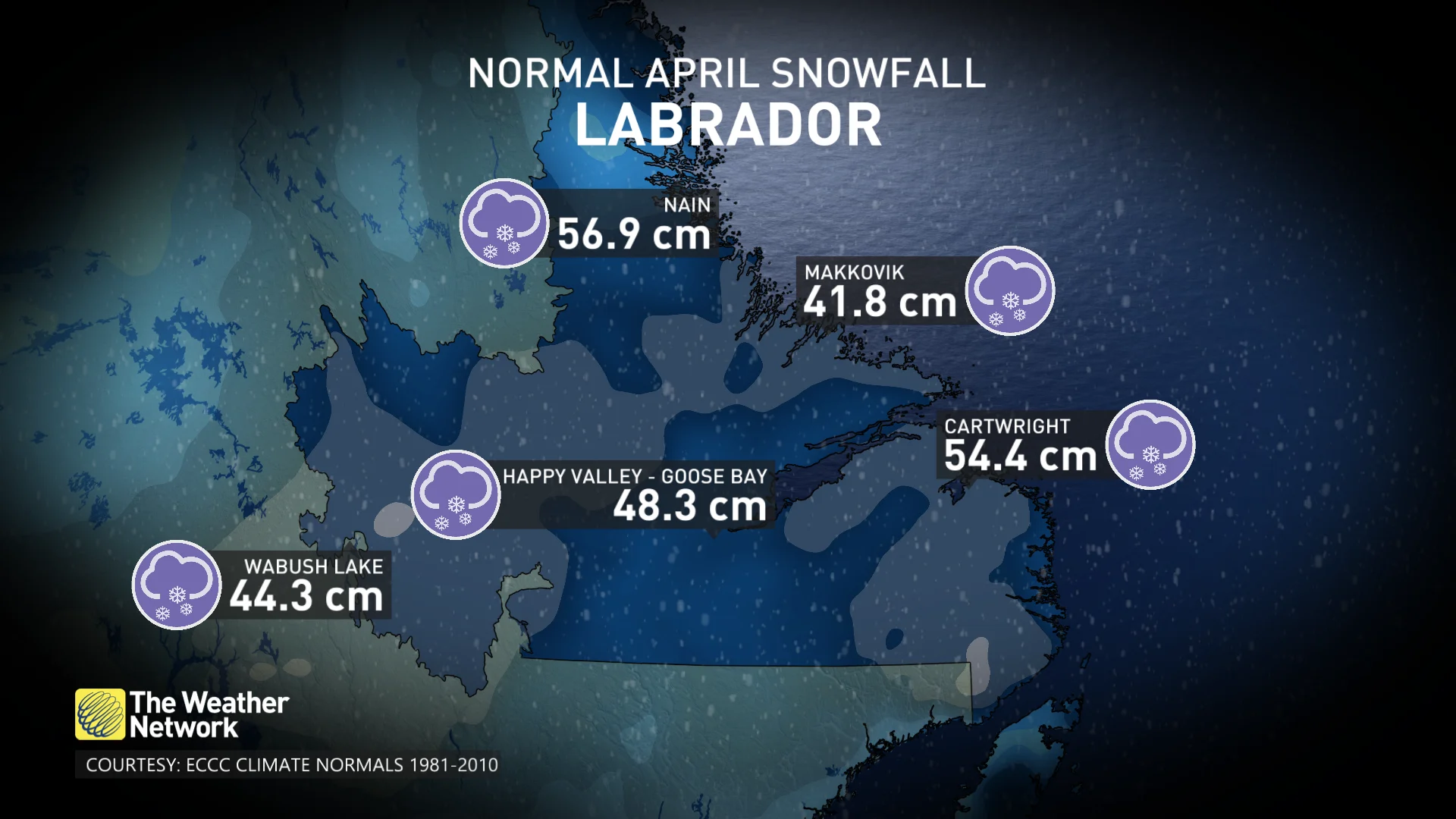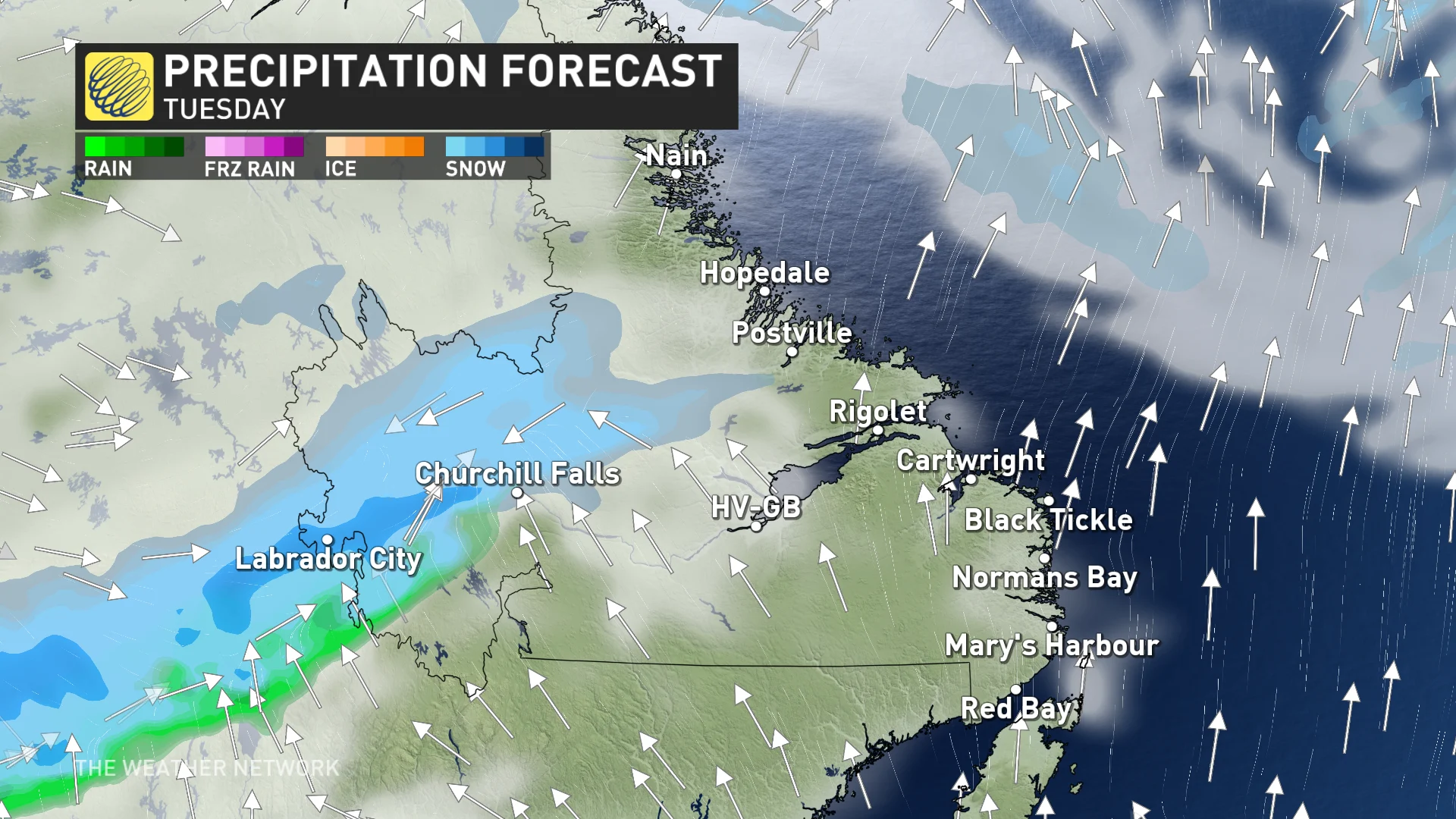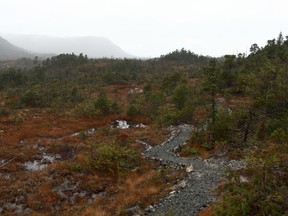Article content
Here is a roundup of stories from The Canadian Press designed to bring you up to speed on what you need to know today…
Tourism operators face heavy debt, even as business roars back

A new poll suggests that while nearly two-thirds of Canadians disagree with the ongoing Wet’suwet’en solidarity blockades that are interrupting rail and truck traffic, three-quarters of Canadians also think the federal government needs to act immediately to address quality of life issues affecting the country’s Indigenous people.
On Wednesday, Ipsos published a new poll conducted exclusively for Global News about the demonstrations that revolve around the construction of a natural gas pipeline in northern B.C. and which have gripped the country for weeks.
The survey results show 61 per cent of respondents disagree that the protesters blockading key transportation corridors are conducting justified and legitimate protests, compared to 39 per cent who said that they believe the protests are legitimate and justified.
“It’s the first poll that we’ve ever done on this issue,” Ipsos Public Affairs CEO Darrell Bricker told Global News. “The first takeaway is that Canadians are not pleased to see ports and railways blocked.
“In fact, they so don’t agree with it that almost half of Canadians — actually better than half, 53 per cent — actually think the police should move in and do something about it.”
READ MORE: Protesters blockade Port of Vancouver in solidarity with Wet’suwet’en
But Bricker noted that the numbers indicating strong views about protester tactics that are disrupting the national economy appear to come with somewhat of a caveat.
“What we also see in the polling is that… [75 per cent] of the people we interviewed are saying that something needs to be done about the plight of the Aboriginal community and that the government hasn’t performed particularly well on this,” he said.
“So there’s some understanding, I would say, for the plight of the Indigenous community, but the blocking of natural infrastructure is not necessarily supported.”
READ MORE: Average Wet’suwet’en people caught in pipeline dispute crossfire, says wing chief
Tensions began to rise significantly on the Wet’suwet’en Nation on New Year’s Day when some members of the community served Coastal GasLink, the company that’s trying to build the pipeline, with an eviction notice, saying its workers were “currently trespassing” on their unceded territory.
A day earlier, the B.C. Supreme Court granted Coastal GasLink an injunction that called for the removal of any obstructions, including cabins, on any roads, bridges or work sites the company had been authorized to use.
Coastal GasLink says it has signed agreements with the elected councils of all 20 First Nations along the path of its $6.6-billion pipeline — including the Wet’suwet’en. However, some of the nation’s hereditary chiefs have been vehemently opposed to the project out of environmental concerns.
READ MORE: Band councils, hereditary chiefs – here’s what to know about Indigenous governance
The ensuing blockades by protesters expressing solidarity with the Wet’suwet’en hereditary chiefs who oppose the project have led to significant disruptions in parts of the country, and just last week, CN shut down its operations in Eastern Canada as a result.
On Sunday, Prime Minister Justin Trudeau aborted his plans abroad and returned to Canada to deal with the crisis. An emergency debate was held about the impasse in the House of Commons on Tuesday night.
When asked about the government’s duty to consult with Indigenous communities on resource development projects, the poll results published on Wednesday show that only 56 per cent of respondents agree that Indigenous people are adequately consulted, and 44 per cent disagree.
“I think Canadians are still trying to sort through what is happening here,” Bricker said.
“They are trying to reconcile two things in their minds: one of them is a legitimate concern that Canadians have about the situation and the plight of Aboriginal people in this country — it’s quite clear that there’s a fairly deep feeling that something needs to be done on that… but on the other hand, even though they feel that this is an important thing that needs to be dealt with, they don’t feel that protesting by shutting down rail lines and shutting down ports is the correct response.”
Bricker also noted that the poll indicates there’s a contrast among different regions in Canada in terms of how the events are being viewed.
For example, support for police intervention is highest in Alberta (69 per cent) and B.C. (68 per cent), while opposition to the use of law enforcement to end the blockades is highest in Quebec (38 per cent) followed by Ontario (29 per cent).
“This is one of the only issues I’ve seen in which British Columbia and Alberta actually align — when natural resources are concerned,” Bricker said, also noting the poll results suggest “younger Canadians are more aligned with the Aboriginal community.”
Bricker said while this marks Ipsos’ first poll on the latest blockades in Canada, his company did surveys related to Idle No More blockades in 2013 and revisited those figures after gathering data for its latest survey.
READ MORE: Alberta’s solicitor general says Idle No More roadblocks not safe
“Opposition to the Idle No More blockades was higher than what we’re seeing right now,” he pointed out.
“But I should say that we’re just starting into this, we’ll see where this goes over time.”
Watch below: Global News’ coverage of the railway blockades.
Bricker noted that with his experience in polling, he believes that “the longer that things go on like this, the more the pressure builds on the government.”
“Public order is one of those things that is really regarded as a primary responsibility for the government and to the extent that… [the public] perceives that things are out of control, the worse it gets for the government.”
READ MORE: Emergency House of Commons debate held over rail blockades
Exclusive Global News Ipsos polls are protected by copyright. The information and/or data may only be rebroadcast or republished with full and proper credit and attribution to “Global News Ipsos.”
METHODOLOGY: This Ipsos poll was conducted between Feb. 14 and Feb. 17, 2020. For this survey, a sample of 1,301 Canadians aged 18+ was interviewed online. Quotas and weighting were employed to ensure that the sample’s composition reflects that of the Canadian population according to census parameters. The precision of Ipsos online polls is measured using a credibility interval. In this case, the poll is accurate to within ± 3.2 percentage points, 19 times out of 20, had all Canadians aged 18+ been polled. The credibility interval will be wider among subsets of the population. All sample surveys and polls may be subject to other sources of error, including, but not limited to coverage error, and measurement error.
© 2020 Global News, a division of Corus Entertainment Inc.
Digital WritersThe Weather Network


Prepare for multiple rounds of April snowfall this week, as Labrador braces for wintry conditions. This onslaught of snow is expected to blanket the region, potentially leading to hazardous travel conditions and disruptions throughout the week
As we march even deeper into the heart of the spring season, many parts of Canada are finding it tough to find any consistent signs of warming weather. Add to the mix periods of snow and wintry precipitation, and it’s safe to say the winter season is certainly not going out without a strong fight.
This week, parts of the East Coast will bear the brunt of the winter weather, with multiple rounds of April snowfall stacking up in Labrador. The chances for snow flurries will stick around all week long, bringing as much as 25 cm for some.
MUST SEE: Extreme pattern over Arctic produces 50+ degree temperature spread
Although 25+ cm of snow in April may seem extreme, for this part of the country, it’s definitely nothing out of the ordinary. In fact, the month as a whole brings about 40-50 cm of snow to Labrador on average.


Some communities, including Nain, even have snowfall chances stretch all the way into June!
“This week will be a little bit different however, as some regions could reach about half of Labrador’s monthly averages alone,” says Rachel Modestino, a meteorologist at The Weather Network. “The first round on Tuesday will pack quite the punch, with heavy snow and gusty winds stretching from Labrador city to the coast.”


Winds will be gusting between 70-90 km/h at times, and travel conditions will likely deteriorate quickly due to potential whiteouts and reduced visibility.
Witnesses described hearing a loud blast and seeing large plumes of black smoke on Tuesday morning as a building under construction in Halifax’s north end caught fire.
A message on Halifax’s alert system said the fire was at a building in the area of Robie and St Albans streets. About an hour later, the municipality said the fire was out.


The alert warned people who live on the peninsula to close their windows due to smoke from the fire possibly being toxic.
“Residents and businesses near the fire should still keep windows closed and air exchangers turned off until air quality conditions improve in the coming hours as a precaution,” the municipality said on X, formerly known as Twitter.
Halifax Regional Police were asking people to avoid the area during what is normally a time of heavy morning traffic.


James Shaw lives nearby. He said he heard a blast around 8:20 a.m. local time.
“It shook the whole house,” Shaw said in an interview at the scene. “So I came outside … and saw this incredible building here on fire. Big black smoke. Lots of sparks and stuff going.”


Mike Clark was working on the building adjacent to the one that caught fire. He said he was on the 30th floor when the roof of the other building caught fire and propane tanks blew up.
He said construction crews were then evacuated from the building.
“The elevator was shut down and everyone went down the stairs and out the door,” he said. “Everybody on each floor has a horn to check if anybody was left in the building. Sounded the horn and walked down. It was very organized.”




Here is a roundup of stories from The Canadian Press designed to bring you up to speed on what you need to know today…
Tourism operators face heavy debt, even as business roars back
Article content
Canadian tourism operators says the tourism sector hasn’t returned to what it was pre-COVID.
Many businesses report carrying a heavy debt load, with Vancouver-based ecotourism company Maple Leaf Adventures saying it’s carrying it’s heaviest debt load in 38 years.
Advertisement 2
Article content
Co-owner Maureen Gordon says while she and her competitors are recovering, higher interest rates are putting a damper on the post-COVID rebound.
Tourism Industry Association of Canada C-E-O Beth Potter says while the sector brought in 109-billion dollars in revenue last year, the federal government must help out by bringing in a new low interest loan program.
Tourism Minister Soraya Martinez Ferrada has said tourism operators have been affected by the warmest winter on record, but will be helped by the federal carbon rebate.
Here’s what else we’re watching …
Trudeau to make announcement in Saskatoon today
Prime Minister Justin Trudeau will be in Saskatoon today, where he will make an announcement highlighting measures focused on youth, education, and health that were contained in last week’s budget.
Joining Trudeau at the announcement in Saskatchewan’s largest city are minister for northern affairs Dan Vandal and Women and Gender Equality and Youth Minister Marci Ien.
Trudeau has faced conflict with the Saskatchewan Party government, whose leader, Premier Scott Moe, has been a vocal and long-standing opponent of the federal carbon levy.
Advertisement 3
Article content
Moe is one of several premiers who have asked Trudeau to host a meeting to discuss alternatives to the consumer carbon price.
—
‘Perfect storm’: Quebec farmer protests continue
Quebec farmers are continuing a series of protests that have brought slow rolling tractors to communities across the province’s agricultural regions.
The president of Quebec’s farmers union Martin Caron says producers are struggling with higher interest rates, growing paperwork and fees on plastic products, like containers of seeds, fertilizer and pesticides.
His organization is asking the current Coalition Avenir Quebec government to ensure farmers can get loans with interest rates of three per cent.
A spokesperson for Quebec’s agriculture minister says farmers can get emergency financial aid through a new program and that the government is consulting with the farmers union about reducing paperwork.
—
Study shows caribou growth at wolves’ expense
New research suggests western Canada’s caribou population is growing.
But the same study also shows the biggest reason for the rebound is the slaughter of hundreds of wolves, a policy which will likely need to continue.
Advertisement 4
Article content
Thirty-four researchers compared notes on herds in Alberta and British Columbia based on a study in Ecological Applications and found between 1991 and 2023, the caribou population dropped by half.
However, over the last few years the numbers have begun to slowly rise, as it’s estimated there are now more than 1500 caribou than there were had not restoration effort been made.
—
Second World War hangar in Edmonton burns in fire
An aircraft hangar built during the Second World War at Edmonton’s former municipal airport has been destroyed by fire.
A spokesman for the City of Edmonton says in an email firefighters were called to Hangar 11 just before 7 p.m. Monday.
The city’s email says 11 fire crews were dispatched to the scene to deal with the heavy smoke and flames and the wooden building later collapsed.
—
How a Newfoundland town shaped creepy ‘King Tide’
A new movie shot in Newfoundland showcases a community heavily reliant on a magical child.
“The King Tide” is about an isolated villagers having their lives forever changed after a mysterious infant washes up on their shores, the sole survivor of a devastating boat wreck.
They name the baby Isla, raise and learn she has healing powers promising immunity from injury and illness.
As the years pass, they become reliant on Isla’s abilities, but when her powers start to fade, a panic sets in as the community begins to fracture.
The movie was shot by Newfoundlander Christian Sparkes in Keels, Newfoundland, a former bustling fishing community which he says he’s been looking to film in for years, but couldn’t until recently due to the cost.
This report by The Canadian Press was first published April 23, 2024.
Article content
Honda to build electric vehicles and battery plant in Ontario, sources say – Global News




Will We Know if TRAPPIST-1e has Life? – Universe Today
Down 80%, Is Carnival Stock a Once-in-a-Generation Investment Opportunity?




See how chicken farmers are trying to stop the spread of bird flu – Fox 46 Charlotte




Simcoe-Muskoka health unit urges residents to get immunized




Own a cottage or investment property? Here's how to navigate the new capital gains tax changes – The Globe and Mail
Strike averted after tentative agreement reached between TTC, electrical and trades workers




Lyrid meteor shower 2024: How to see a stunning fireball tonight – BBC Science Focus
Comments